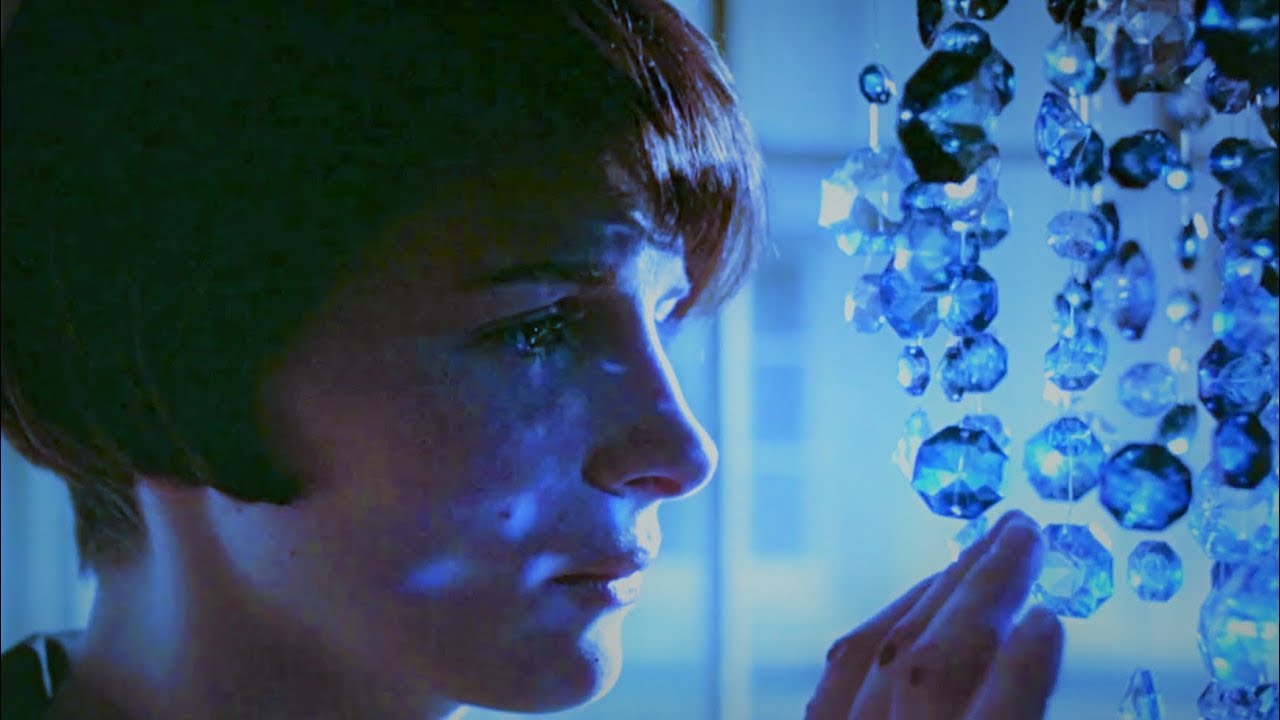Wednesday
Jan232008
Blue
 Wednesday, January 23, 2008 at 00:42
Wednesday, January 23, 2008 at 00:42 The hyphenated bond of Franco–Poles, from this composer to this extremely accomplished scientist to the late director of this film, is corroborated very surreptitiously by the two nations' most fundamental symbols: turn the Polish flag on its head, make it somewhat more squarish, and it will comprise two–thirds of the French tricolor. That is not to say, of course, that Poland is two–thirds the country France is, although their populations and areas would suggest those figures are not far off; rather, there seems to be a strange nexus of creative energy hovering between the two states that has persisted throughout the course of modern European history. France admires Poles for their resilience and intellectual activity in the face of ever–vacillating borders and governments, and Poland gazes with unenvying pride at the French and their ideals and freedoms. And although the comely trilogy Trois couleurs, of which Blue is the first and most serious part, is a Polish product, this opening color is most definitely French.

 French, despite the fact that the film's primary conceit is the creation of a symphony for all of Europe. This was the task assigned to famed composer Patrice de Courcy, a noble name, who does all of Europe the disservice of getting himself into a fatal car accident at the beginning of the film (he dies, says an eyewitness who approaches the wreck, repeating the punchline of the joke that distracted him in the first place). He also takes his seven–year–old daughter with him to the grave, leaving his wife and her mother Julie (a peaking Juliette Binoche) completely and utterly alone. They have fabulous wealth and reputations, so she will not endure the banality of indigence; but her solitude could very well be the death of her. So although she initially wishes the music destroyed, when a copy turns up she decides to make the most of her melancholy and finish the symphony. A woman finishing the symphony of Europe! Indeed, and no one seems to raise one woolly, traditionalist brow at this circumstance. Things have definitely changed (and for the better).
French, despite the fact that the film's primary conceit is the creation of a symphony for all of Europe. This was the task assigned to famed composer Patrice de Courcy, a noble name, who does all of Europe the disservice of getting himself into a fatal car accident at the beginning of the film (he dies, says an eyewitness who approaches the wreck, repeating the punchline of the joke that distracted him in the first place). He also takes his seven–year–old daughter with him to the grave, leaving his wife and her mother Julie (a peaking Juliette Binoche) completely and utterly alone. They have fabulous wealth and reputations, so she will not endure the banality of indigence; but her solitude could very well be the death of her. So although she initially wishes the music destroyed, when a copy turns up she decides to make the most of her melancholy and finish the symphony. A woman finishing the symphony of Europe! Indeed, and no one seems to raise one woolly, traditionalist brow at this circumstance. Things have definitely changed (and for the better). There are, as always crop up in these studies of the habits of lonely artists, complications. Julie is according to most tastes radiantly attractive in mind and appearance, so she must have a doting admirer (Benoît Régent). She must also find out something about her husband that she may have expected or wished to ignore during his lifetime (we will skip this section). And finally she, like all interesting fictional characters, must not be quite what she appears to be. These are the prerequisites for this type of allegory, the finest kind: that of the nature of art itself. That Julie takes more than an acute interest in concealing the fact that she has anything to do with her husband’s work, and that such completion comes so naturally to her that she might have considered a career in the field herself had it not been for her child let us concatenate all the links that Kieślowski provides because they all fit quite nicely together.
You will find, if you use the intergalactic weapon known as Google, that Kieślowski thought blue, apart from the obvious mood associations, was for Julie the color of emotional freedom in the spirit of the revolutionary liberté that spawned the flag. She has lost her family and is now left with her (husband’s) unfinished business. We will take the director at his word and add that since, to paraphrase this Franco–Irishman, the artistic spirit is inherently reductive, Julie is weirdly stripped (one of the supporting characters is, among other things, a stripper) of all shackles that might prevent her from achieving the unity of Europe in her music. Sorry, I mean her husband’s music. That music, by the way, is the work of Kieślowski’s fellow countryman Zbigniew Preisner, noted for his haunting accompaniment to this work of genius, as well as to just about every one of Kieślowski’s films up to the director’s death in 1996. The soundtrack, which left me with a splendid impression when I first watched Blue in the mid–1990s, now sounds frantic and thunderous, a tad too unwieldy for its own good. But who said writing for all of Europe was supposed to be easy?

Reader Comments